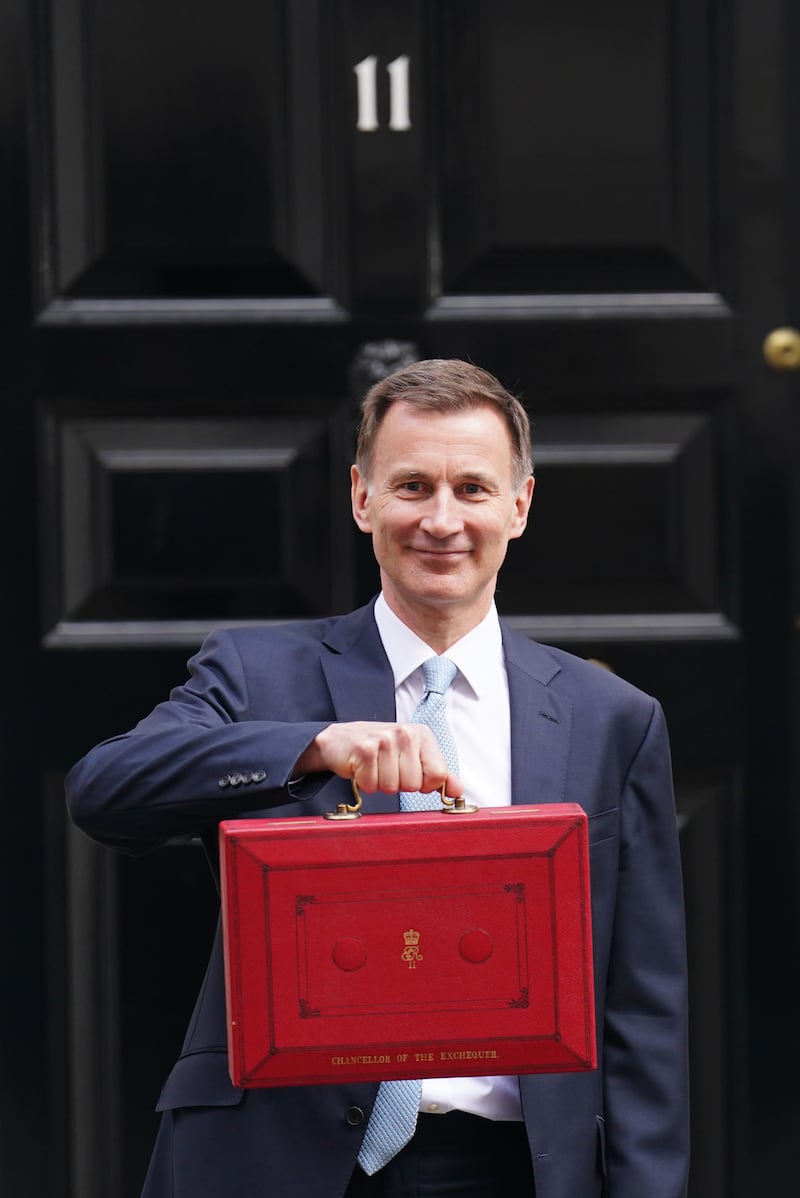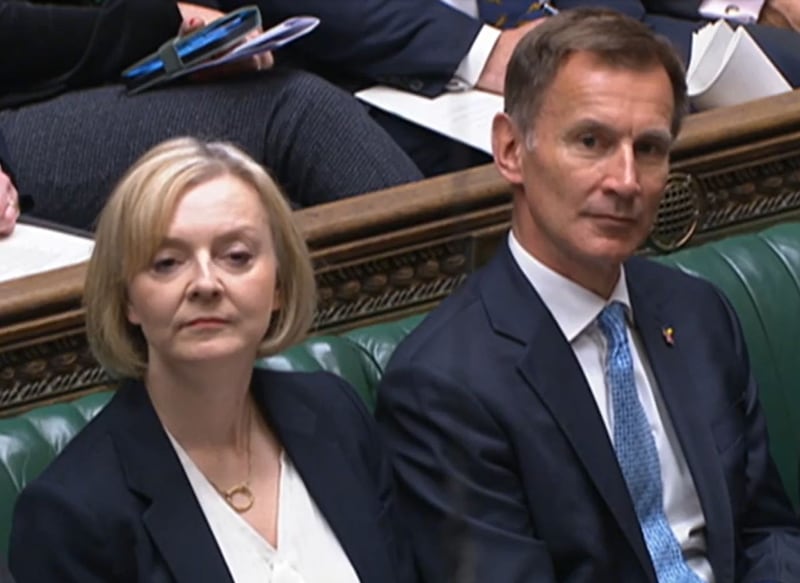Jeremy Hunt tackled the flea problem Liz Truss highlighted in Downing Street by replacing the carpets at “vast” personal expense.
The Chancellor, who was brought in by Ms Truss to clear up the economic mess created by the mini-budget, said he had also dealt with the problems in the No 11 flat.
Mr Hunt defended Ms Truss’s desire as prime minister to slash taxes but said “she went about it the wrong way”.
In her book 10 Years To Save The West, Ms Truss – who lived in the more spacious No 11 flat rather than the accommodation above No 10 – said “the place was infested with fleas”, possibly due to Boris Johnson’s dog Dilyn although “there was no conclusive evidence”.
Ms Truss said “the entire place had to be sprayed with flea killer” and “I spent several weeks itching”.
At an event in Washington DC, Mr Hunt confirmed he had taken a more drastic, and expensive, approach.
“I actually live in the flat that Liz Truss lived in and Boris Johnson lived in before that,” he said.
“She was only there for less than 50 days. I had a little bit longer, when I knew I was going to be moving in there, and I replaced all the carpets at my own expense – vast expense because it had to be a security-cleared company that did it.
“So I’m pleased to say that the Hunt family has not had the flea problem.”

At the Semafor World Economy Summit, Mr Hunt said: “Liz Truss appointed me as Chancellor and we had very good personal relations. She is very open about the fact that she made mistakes.
“I would say that some of the things that she was aiming for were the right things. She said that the fundamental existential question for Western countries is how we get healthier growth rates in our economy. I agree with that.
“And she said that we need to bring down the tax burden, and from a European perspective, we look around the world and I think it is blindingly obvious that North America and Asian countries are growing faster, and they have a lighter tax burden.
“And I think that we need to move the UK back in the direction of a lighter tax burden. But she went about it the wrong way.”
The Chancellor said “it is possible to cut taxes without increasing borrowing”.
Mr Hunt added: “That was the thing that spooked the markets, the idea of taxes being cut in a way that you couldn’t demonstrate where the money was coming from. I think we’ve shown it’s possible to do the same thing in a way that works.”

Ms Truss has called for fundamental reforms to the UK’s economic architecture, scrapping the Office for Budget Responsibility and replacing the Bank of England’s governor Andrew Bailey.
Mr Hunt acknowledged there were problems with the way economic forecasts were drawn up.
He said: “We have definitely got to be better at forecasting. In the UK’s case our big weakness is on forecasting the performance of the labour market, its tightness, but we’ve got to be better at that.”
But the Chancellor insisted the UK was “winning the battle” with inflation and the economy “pretty much had a soft landing” compared with the scale of recession that had been feared.
On ITV’s Peston, Ms Truss said she was “blindsided” by the vulnerabilities in the pensions system that were exposed as the market got spooked by her first chancellor Kwasi Kwarteng’s mini-budget.
She said: “Certainly, if we had known about the extent of the tinderbox, of course, we would have gone about things differently. We simply didn’t know about that.
“And all of the plans that we put together were worked up with Treasury officials. We did the costings, that was put in the book that accompanied the mini-budget. So there was no sense in which what we were doing was a high-risk strategy.”








